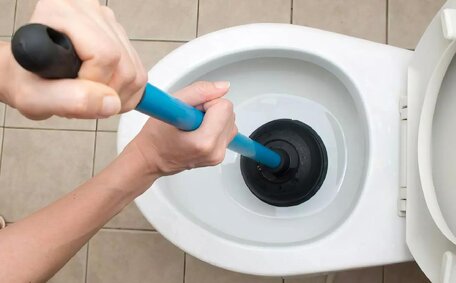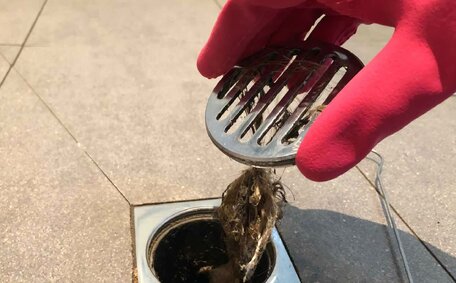
How to Prevent Household Blocked Drains
Blocked drains can be prevented by using drain strainers, avoiding pouring oils down drains, clearing hair from drains, and more tips from Seven Hills Plumbing.
Read MoreNavigating the division of responsibility for emergency plumbing in rental properties can be challenging for tenants and landlords. Familiarity with the obligations prescribed by the Residential Tenancies Act 2008 is crucial for managing repairs and plumbing emergencies effectively. This Act outlines the responsibilities associated with property maintenance and repairs in New South Wales.
This article will clarify liability for emergency plumbing repairs in rental units. We will outline key responsibilities, define what constitutes an emergency issue, overview relevant legislation and offer advice for renters on the appropriate steps to take when facing an urgent plumbing problem.
Plumbing emergencies require immediate attention to prevent further property damage or safety hazards. Urgent issues that require immediate action can include burst pipes, gas leaks, overflowing toilets, or malfunctioning hot water systems. Examples of emergency plumbing situations include:
In contrast, nonurgent repairs for plumbing problems are issues that do not pose an immediate threat but still require attention. These may include:
Non-urgent issues, though not requiring immediate attention, should be addressed promptly to prevent escalation.
The Residential Tenancies Act specifies landlord responsibilities and tenant duties for plumbing upkeep and repairs in rental properties. Landlords are required to maintain utilities, including electricity, water services, and plumbing systems, in good working condition throughout the tenancy. This commitment helps preserve the integrity of the property and its plumbing infrastructure.
In the case of urgent plumbing issues, the landlord must arrange professional repairs within 24-48 hours. Tenants should immediately notify their property managerowner of any emergencies like burst pipes or gas leaks.
While landlords manage major plumbing issues, repairs can be requested by the tenant for minor leaks reported promptly, Avoid any damage caused by negligence and enable landlord access for repairs. Your tenancy agreement often outlines these shared plumbing obligations.
Should landlords neglect essential repairs after reasonable notification, tenants may seek recourse through the NSW Civil and Administrative Tribunal, supported by evidence of repair requests and rental costs. In dire circumstances, tenants are permitted to initiate emergency repairs to avert property damage or health risks.
In the event of plumbing emergencies such as burst pipes or gas leaks, tenants must immediately notify their landlord. Keep detailed records of all communication, including dates, times and details of the issues reported.
When a tenant experiences an issue, they should use any emergency contact numbers provided by the landlord to report urgent plumbing problems. Should the landlord fail to address the plumbing emergency within 24 hours, contact the local Fair Trading office for guidance on arranging the repairs independently.
Take photos or video evidence of damage where possible.
Tenants in strata units should reach out to the Owner’s Corporation or building manager if the landlord is unreachable. It’s also common for tenancy agreements to mandate notification of body corporates in emergencies, making it vital to check the terms of your lease.
While waiting for emergency repairs, take reasonable steps like turning off mains water or gas where necessary to prevent further property damage. However, do not attempt DIY fixes unless it’s necessary and you’re allowed onto the property to ensure property safety.
Determining who pays for emergency plumbing repairs often depends on the cause and nature of the damage.
Typically, landlords bear the cost for repairs due to normal wear and tear, structural problems, or equipment malfunctions beyond the tenant’s control, such as burst pipes and failed hot water systems.
However, tenants may bear costs for issues beyond fair wear and tear if they have been negligent and caused a blocked toilet or other damage. For example, tenants would be liable for resolving a blockage if caused by inappropriate items they flushed. Excessive damage from misusing fixtures and fittings would also fall under a tenant’s responsibility.
Upon moving in, tenants should photograph the condition of the plumbing to document any pre-existing damage and track repairs. This can safeguard against wrongful financial responsibility for issues not caused by the tenant. Retaining communication records is equally important.
Landlords can mitigate emergency repair costs by self-insuring or obtaining building insurance. Strata laws may involve special emergency fund levies to help cover significant incidents impacting an entire complex.
Fair Trading departments can advise tenants on consumer rights and responsibilities when there’s uncertainty about who is responsible for repair costs.
Tenants have significant rights concerning emergency plumbing repairs under residential tenancy laws. If landlords neglect necessary urgent repairs, tenants can take further action.
The Residential Tenancies Act entitles tenants to a well-maintained rental property. Landlords are obligated to rectify critical matters like burst pipes and blocked sewers promptly, ideally within a one to two-day window upon notification.
The NSW Civil and Administrative Tribunal can mandate landlords to perform repairs, authorize tenants to oversee emergency repairs with subsequent reimbursement, or award financial compensation for unmet repair duties.
Tenants can submit complaints to NSW Fair Trading regarding property managers or landlords neglecting urgent repairs. Fair Trading can investigate and take disciplinary action in serious cases of non-compliance with tenancy laws.
Tenants must know their rights and avenues for recourse, including lease termination for unaddressed plumbing emergencies. Knowledge of resolving disputes via tribunals and Fair Trading is crucial.
As outlined, both landlords and tenants share responsibility when it comes to emergency plumbing issues in rental properties. Understanding the legal obligations under residential tenancy laws is key.
Landlords are required to respond swiftly to critical plumbing problems, upholding the property’s functional integrity. Tenants have a duty to report emergencies without delay, meticulously track communications, and avert damage through negligence.
For dispute resolution, tenants may turn to Fair Trading departments or tribunals. Additional resources like state tenants’ unions can offer a more nuanced comprehension of renters’ rights and responsibilities.
For professional plumbing assistance or advice tailored to your situation, Seven Hills Plumbing welcomes your call on 1300 349 338 or email to [email protected]. Our fully licenced technicians serve Seven Hills and surrounding regions 24/7.
Blocked drains can be prevented by using drain strainers, avoiding pouring oils down drains, clearing hair from drains, and more tips from Seven Hills Plumbing.
Read MoreNoticing signs of a household blocked drain like slow drainage, gurgling sounds, foul odours or overflowing water indicates you need an emergency plumber. Call Seven Hills Plumbing to dispatch a plumber to clear your blocked pipes before further damage.
Read MoreRestaurants and cafes frequently deal with blocked kitchen drains due to grease, fat and food buildup. Prevent clogged pipes through scraping plates, using drain strainers and avoiding pouring fats/oils down sinks. Or call a professional plumber to hydro jet pipes and permanently clear blockages.
Read MoreSeven Hills, 2147 NSW
We will call back as soon as possible.




